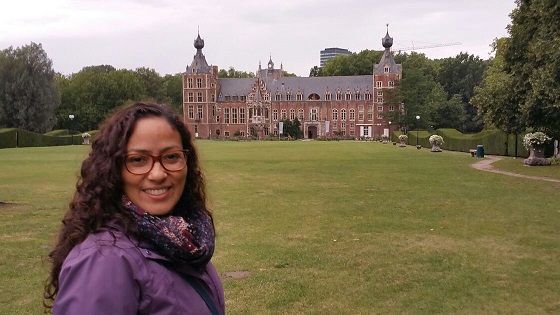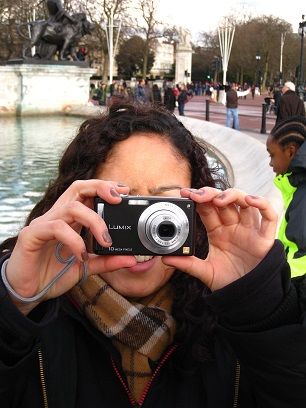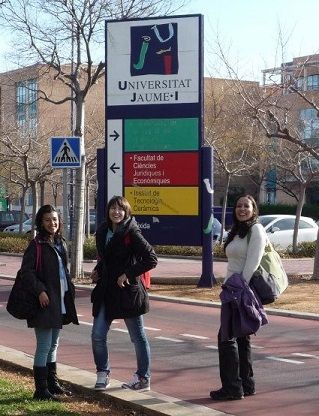How to study or work abroad? Part # 1
1.- Why would I go to work or study outside my country?
The process and decision making to study or work abroad should be done in a very conscious and responsible way.
The first thing you have to ask yourself: What do you want to get out of this?
Pros and cons? And why?
But let’s go in steps. Before choosing a country to go to, you must define your reasons or motivations, these can be very diverse, for example:
Do you want to know another culture?
Do you want to learn or improve a new language?
Do you want to improve your knowledge and work in your professional area?
The reasons for leaving can be very complicated or very simple. Whatever the reasons for emigrating:
You must be clear what motivates you to leave your country!
These reasons must be strong enough that they will help and support you at some point of crisis. They will motivate you to go ahead and help to face any obstacle.
At some point you will face yourself, you will be alone with your emotional, physical or mental problems. This can prevent you from fulfilling your commitments.
As a foreigner, you will miss "a lot" to your family, and your country.
In those moments you must remember your reasons to embark in this adventure. Talk to someone about it, it's okay to ask for help.

2.- Which country/would I choose and why?
When choosing a country, you must INVESTIGATE about the migratory processes and its costs. This information can be found on the page of the embassy of the chosen country, inquire if you need a visa and how to manage the study and/or work permits.
Analyse the region: Do you want Mexico, Argentina, Spain, USA, Brazil, Colombia, Ecuador or Chile or another?
All countries have problems. Everyone is going to give priority to their own citizens ahead of the immigrant.
3.- What are your main doubts to find work or study abroad?
You need to understand the relationship between the minimum wage and/or the amount of the scholarship and the prices of rents, services, transportation and food. What does a decent standard of living cost? In some countries the minimum wage is not a useful comparison because you will not be able to have the quality of life you want.
Find out what profiles are in high demand in the region and what the job market is like, and how to be competitive in the job hunt.
If you want to study look for educational offers in the universities of the region and what kind of support they offer to foreign students.
Ask for advice: If you are a doctor don’t ask an accountant and if you are an educator do not ask an engineer about employment or study opportunities in that place
Make sure you ask well informed people about your specific needs.
Check job portals and/or scholarships and do a lot of research. If you do not take the trouble to investigate, you better not immigrate. Don´t be scared off by other people’s bad experiences and horror stories about job/ scholarship hunting, there will be always people who say that it is too difficult. Talk to people who did succeed and learn from them.
"Take the decision". You alone should be responsible the decision to leave your country from the moment you think about it.
Get used to investigating internal search engines: visas, foreign ministry and human mobility, obtaining your criminal record, access to a main registry and register your titles, do not wait for the fruit to fall, look for it!

4.- What difficulties do you predict? Are they fixable? How?
.- Language is a great factor to consider. Or you already know it or you want to learn it! In both cases you can cope.
If the knowledge of the language is insufficient, you will not be able to function easily in day to day life. Lack of local language knowledge can create problems, from difficulties in having a fluid communication and can even create critical problems. This costs you a lot of mental energy on a daily basis and can really slow your progress.
.- Another subject that is often not mentioned is climate. The lack of sunshine and constant rain, for instance can affect your health and mood. It can induce crises that transit between sadness, longing or anger. If you inform yourself in advance, preferably with people like yourself who live there now, you can mentally prepare better and figure out how to cope with this factor.

5.- Do I have the resources to look for a job or study abroad?
In the case of studies in general, scholarships offer an amount of money for the moving and installation expenses.

If you want to find a job, it is important to have the curriculum updated and translated if necessary.
One recommendation when looking for a job is to fill in the job applications in advance and send the resumes electronically. Plan job interviews in advance, and if possible have a first interview over Skype, so you don´t waste time with visiting employers that are not serious. You can travel to the region and conduct several interviews and deliver your resume to potential employers.
An important resource to consider are tips or tips from family members or friends who are nearby or live directly in the region: They can inform you of procedures and agencies for help as well as the conditions to start.
Depending on which country, you will need a minimum financial reserve that you must be able to demonstrate to immigration officials to be allowed into the country.
6.- Other considerations
The conditions change if instead of emigrating yourself, you are accompanied by your family since the migratory procedures and all the circumstances are different. In some cases you will have to convince your partner and kids, and in others you will have to convince your parents and family.
In some countries meal times and breaks are different. These routines will unbalance your original rhythms; not to mention the change of diet can create a craving for your native food with its scents and flavours. But it is a challenge that is solved over time, be patient, join in.
When you live in your country, your activities are routine. But abroad everything is different. Until you build a new daily life and routing in that other place, it can be a factor of discomfort.
Please do not be like some people that emigrate and want that the others adapt to them! It will cause discomfort and frustrate you.
I have met people who do not understand this process, they travel to Spain and they are constantly cursing the food for not being like their food at “home”. Others do not even try to speak Spanish! They live in the shade without being seen or seen. They raise barriers that prevent them from communicating and increase the anguish of the commitments to be fulfilled.
I recommend that you look for pages that offer leisure activities. Sharing leisure time with the people of the region will help you understand the culture, food and improve your language.
Knowing other countries and cultures will make you grow as a person, strive to learn, be humble let yourself be taught.

I have encountered experiences that have brought me to tears of emotion without realizing it, such as the Mascletà of Valencia!

Without realizing it you will find yourself enjoying another culture and you will live with passion. The purpose of that is to live, to taste, to learn, to discover…

I hope this post helps you, my desire is that you emigrate and see that the world will give to you what are willing to give to the world.
In my next post I will talk in more detail of tips for those who seek employment and others for those who seek to study abroad.
Good article! I would suggest any young people will to emigrate to first try (in Europe), the European Voluntary Service which enables people to work for an association in another European Country for a length of one year max. Perfect to get used to another atmosphere :)
Thanks for your comment!!
It's a very good idea too;-)